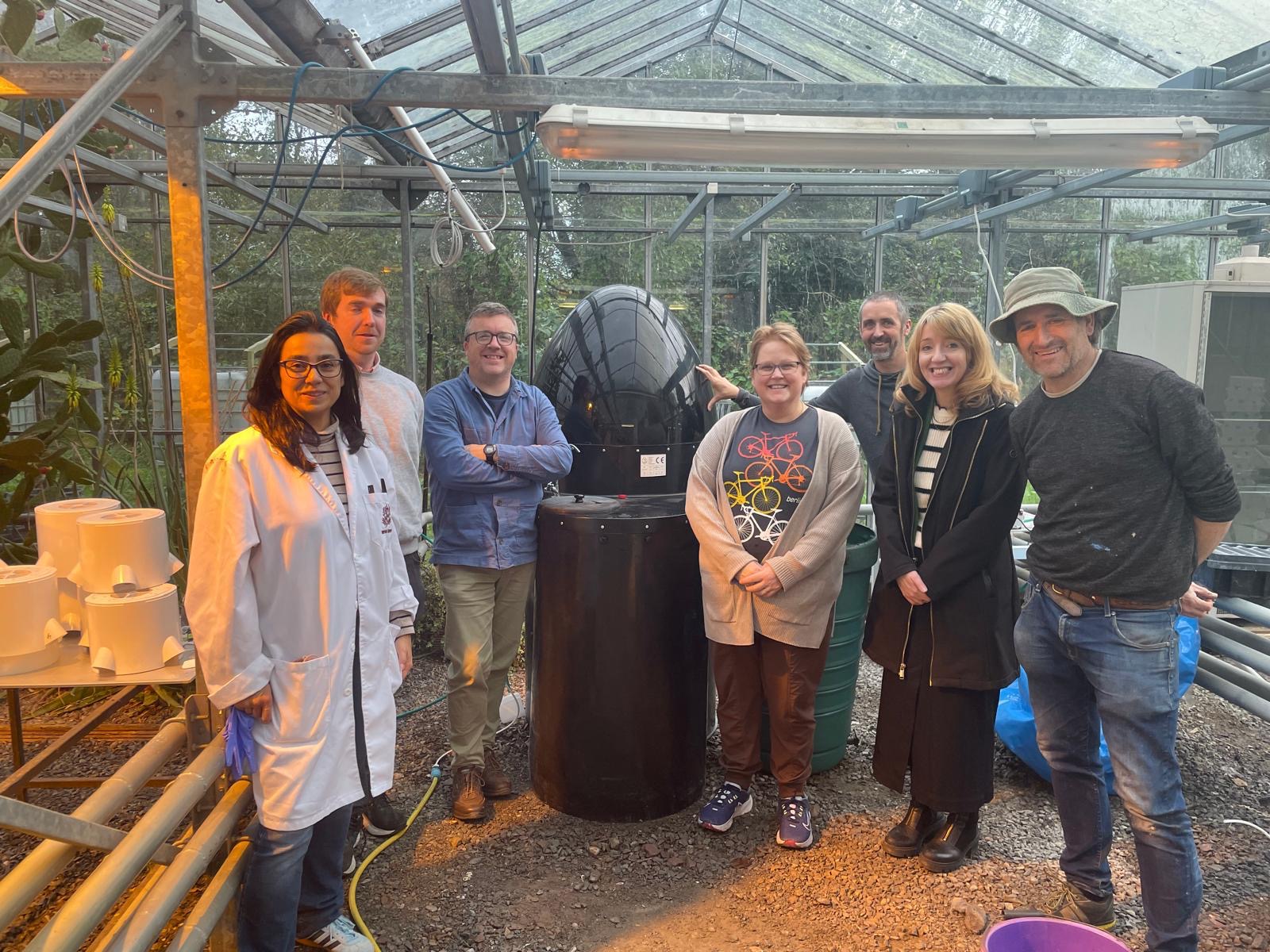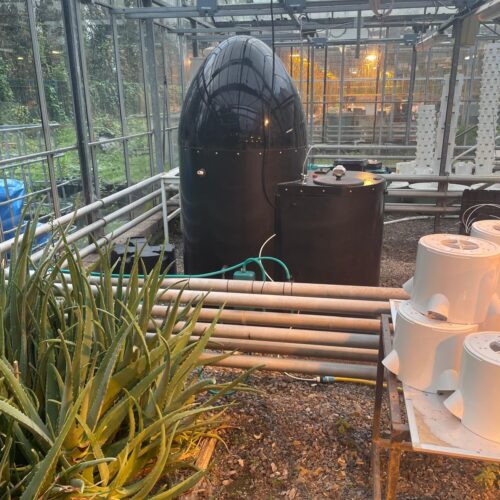MyGug at the School of Biological, Earth and Environmental Sciences (BEES) at University College Cork
The Challenge
At University College Cork (UCC), sustainability is embedded across the university’s Research, Practice and Study. UCC is committed to net zero through world leading research, demonstration of best practice on campus, and the education of current and future leaders and decision makers. As a global leader, the university is committed to trialling innovative and sustainable solutions that foster sustainability learning, research and innovation.
UCC’s Green Campus Programme is a key part of embedding sustainability at the University, continually improving the campus with new ideas and sustainable solutions. Through its Living Laboratory fund, the campus itself becomes a testbed for novel sustainability solutions.

New sustainability research at the School of Biological, Earth and Environmental Sciences (BEES) in UCC is focused on urban farms including maximising the efficiency of growing food in soil-less aeroponic vertical towers that use 90% less water than conventional systems with no nutrient run-off. The urban farm project looks at more sustainable ways of growing food in cities and towns where land availability is at a premium.
MyGug food waste to energy digester technology on campus is a sustainable solution generating energy for research and growing.
The Solution
MyGug, a unique, compact food waste to energy on-campus digester has been introduced to the School of Biological, Earth and Environmental Sciences (BEES). Turning food waste to energy on a small-scale at source, MyGug is fostering research and innovation at the School using the natural process of anaerobic digestion to turn food waste to biogas and a valuable liquid plant food (digestate) for growing,
The breakthrough green technology also supports sustainability more widely in the University for positive impact involving staff, students and the wider community, for people and planet.
Dr Barbara Doyle Prestwich, Vice-Head of the School of Biological Earth and Environmental Sciences, Senior Lecturer and Principal Investigator is excited at the prospect of minimising food waste and maximising growth capacity in the Urban Farm by combining the outputs of the Anaerobic Digestor i.e digestate with the Aeroponic Vertical Farm. She adds that final year honours project students from the School of BEES in association with the Tyndall National Institute are undertaking research on the sustainability and economic value of the digestate from the AD in growing a variety of plants.

Maria Kirrane, Head of Sustainability and Climate Action, UCC says: “We are delighted to have a MyGug digester located here in UCC supporting positive climate action for our Green Campus. By turning unavoidable food waste into a resource on-site we’re demonstrating how small-scale actions have far-reaching impact.”
The role of MyGug at UCC is expanding, advancing the technology and applying our understanding of the natural world through excellence in research, teaching and innovation.
Key benefits and research value:
Measurable Outcomes
This lab size MyGug unit at University College Cork can treat 2 tonnes of food waste per year (5.5kg of food waste per day) which produces up to 1000L of biogas per day.
- Immediate reduction in carbon emissions from food waste
- Supply of renewable energy
- Economic viability – cost savings